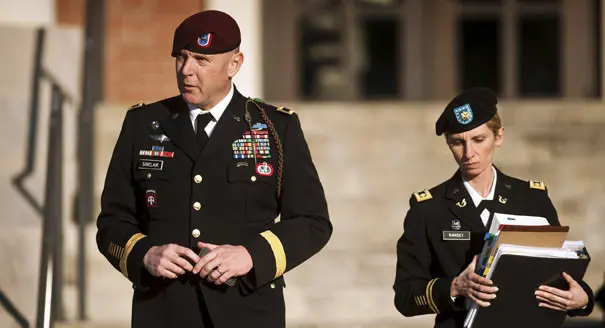The military is often associated with combat, strategy, and defense. However, an essential aspect that often goes unnoticed is the legal framework that governs the armed forces. Military lawyers, also known as Judge Advocates or JAG officers, play a pivotal role in ensuring that the law is upheld within the military, protecting the rights of service members, and maintaining the integrity of military operations. This article delves into the crucial role of military lawyers, highlighting their responsibilities, challenges, and contributions to justice within the armed forces.
The Role of Military Lawyers
Military lawyers serve in various capacities, providing legal support across multiple dimensions of military operations. Their primary responsibilities include advising commanders on legal issues, representing service members in courts-martial, and handling administrative actions. JAGs also ensure compliance with international law and the laws of armed conflict, particularly in situations involving military engagements abroad.
One of the most significant roles of military lawyers is to provide legal counsel to service members facing disciplinary actions. When a service member is accused of a crime, military lawyers step in to defend their rights, ensuring that due process is followed. This includes representing them in courts-martial, which are military tribunals that adjudicate serious offenses, such as desertion or assault. The outcomes of these proceedings can have profound implications for a service member's career and personal life, making the role of military lawyers critical.
Advising Commanders
In addition to representing individual service members, military lawyers play a vital advisory role to commanders and military leadership. They provide guidance on legal matters related to military operations, ensuring that all actions comply with domestic and international law. This can include advice on rules of engagement, the treatment of prisoners of war, and the lawful use of force.
The legal landscape in military operations is complex, often involving the interplay of various laws, including the Uniform Code of Military Justice (UCMJ), federal laws, and international treaties. Military lawyers help navigate this intricate web, ensuring that decisions made by military leadership are both legally sound and ethically responsible. Their expertise is crucial in maintaining the rule of law and protecting the rights of individuals within the military framework.
Challenges Faced by Military Lawyers
Despite the vital role they play, military lawyers face unique challenges in their practice. One significant challenge is the often high-stakes environment in which they operate. Military lawyers must balance the interests of their clients—service members—with the needs and directives of military leadership. This can create conflicts of interest, particularly when a commander’s objectives may not align with the rights of an individual service member.
Additionally, military lawyers often work under significant time constraints and limited resources. The fast-paced nature of military operations means that legal advice is needed quickly, often in high-pressure situations. This requires military lawyers to be adaptable, resourceful, and capable of providing sound legal counsel in a timely manner.
The Importance of Ethical Standards
Ethical considerations are paramount in the military legal profession. Military lawyers are bound by the same ethical standards as civilian lawyers, but they also have additional obligations due to their unique role in the armed forces. They must navigate the complexities of representing clients while adhering to military values and regulations.
Maintaining the integrity of the legal process is essential, not only for the protection of individual rights but also for the overall effectiveness of the military as an institution. Military lawyers must ensure that justice is served, which sometimes involves pushing back against decisions made by military leadership when they conflict with legal standards.
Training and Development
The path to becoming a military lawyer is rigorous and competitive. Prospective JAG officers typically must complete law school and pass the bar exam before being commissioned into the military. Upon entering the JAG Corps, they undergo extensive training that covers military law, criminal law, and various legal procedures relevant to military operations.
Continuous professional development is also crucial for military lawyers. As legal standards and military operations evolve, ongoing education and training help ensure that military lawyers remain current on changes in law and policy. This commitment to learning enables them to provide the best possible legal representation and advice.
Conclusion
Military lawyers are indispensable to the armed forces, serving as defenders of justice within a complex and demanding environment. Their role goes beyond mere legal representation; they are vital advocates for the rights of service members and essential advisors to military leadership. As the military continues to evolve, the importance of military lawyers in maintaining the rule of law and ensuring ethical conduct will remain paramount. Their contributions are not only crucial for individual service members but also for the integrity and effectiveness of military operations as a whole.




